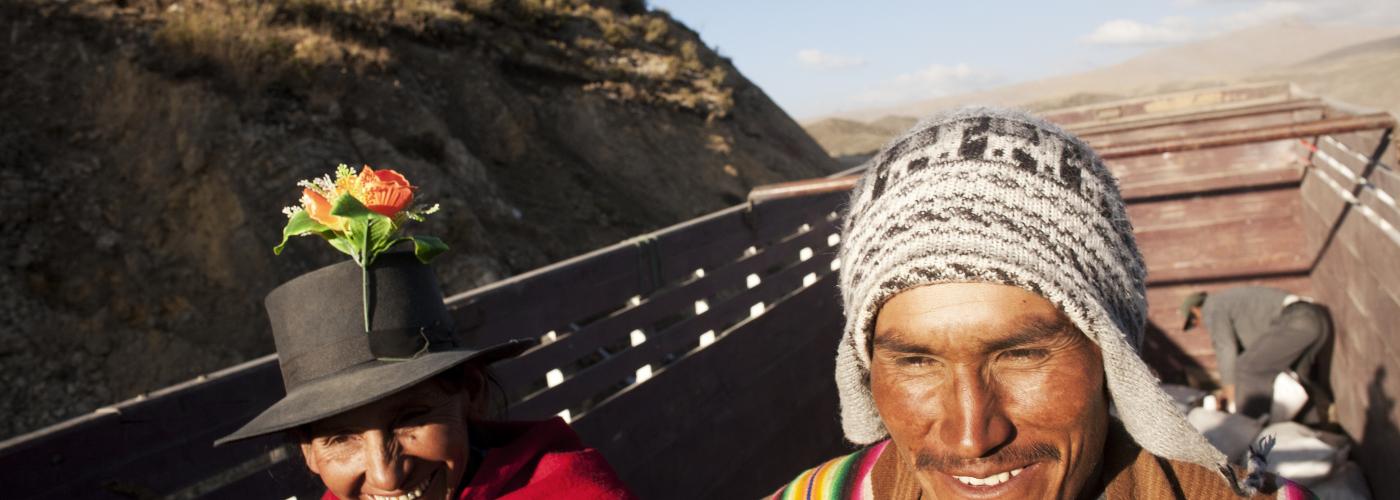General information
Title
Organisations claim their rights and propose alternatives to extractivism in Bolivia
ID
XM-DAC-2-10-8525
CRS ID
2022008525
Start date
End date
Activity status
Implementation
Budget
€2.402.932
Actor
NGO Broederlijk Delen - BD
Country
BOLIVIA
Sector
Government and civil society - Human rights
Policy markers
Nutrition 1
Gender 1
Desertification 1
Biodiversity 1
Climate: Mitigation 1
Climate: Adaptation 1
Environment 1
Good Governance 1
Aid type
Core support to NGOs, other private bodies, PPPs and research institutes
Priority partner country
Yes
Fragile state
No
Least developed country
No
Budgetline
54 20 356072 NGO Programs
Finance type
GRANT
Tied status
No
Flow type
ODA
Body
General
Organisations affected by extractive projects in the highlands and lowlands in Bolivia manage to have an impact on the public policies at the different levels of government to ensure the fulfilment of their collective rights. They do so, incorporating their proposals for alternative integrated management and taking into account gender and generational equity. The Bolivia outcome focuses on organizations, sectors and social groups located in the Bolivian highlands (Oruro, Cochabamba) and lowlands (Santa Cruz, Chuquisaca). They are affected in different ways by, and present different levels of awareness about, the negative impacts of extractive projects. These projects are at the core of the current economic model in Bolivia and imply the appropriation of natural resources (and territories), which is often carried out in a violent manner. These extractive activities do not take into account the impacts on the environment and often violate the rights of the people that are directly and indirectly affected by them. The outcome aims for the actors of the outcome to assume a proactive role in responding to the impacts on their rights, their livelihoods, the environment and society as a whole. This means they promote the defense of their rights, including collective and environmental rights, through political and legal advocacy towards the different levels of the State (central, subnational) and the promotion of collaborations and alliances, political and leadership training and organizational strengthening and support. The outcome specifically relies on the key role of women and young people in these processes and aims to strengthen the proactive role of the actors who develop alternative proposals that prioritize the sustainability of the environment, life and the structures of social networking. Appropriate technical support allows these actors to implement, upscale and interrelate concrete initiatives of integral territorial management, with the active participation of women and young people. At a broader level, the outcome contributes to raising public awareness in society about the problems, implications and consequences of the extractive model, by making specific cases visible through research, training and communication strategies.


